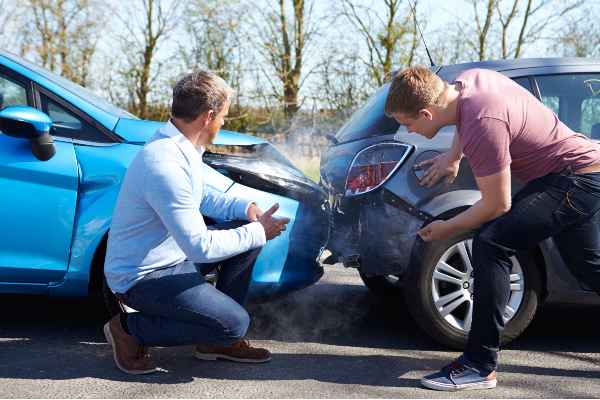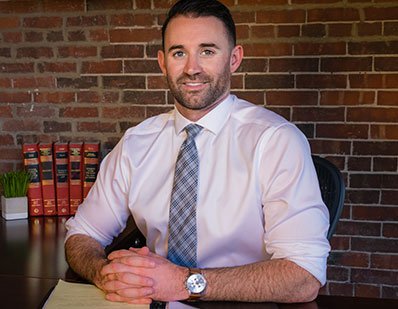Negligence is the basis of personal injury claims; the liable party will be the one that acted neglectfully and caused harm to the other person through their actions or inaction. However, proving negligence is not always simple, and in some cases, it may not lie entirely in one party’s court.
While Massachusetts is a no-fault state, primarily, understanding negligence is important because the state law for personal injury cases does allow you to seek fair and maximum compensation for your losses from the responsible party under specific circumstances.
Be sure to contact a competent and experienced personal injury lawyer as soon as possible after an accident to see if you can prove the negligence of the other party and if that will get you fairly compensated for your economic and non-economic damages..
Negligence In Personal Injury Law

Before we go on explaining how you can prove someone’s negligence in your personal injury case, let’s first take a look at what negligence means in personal injury law and what are the elements that define it. Here are the details:
Negligence is simply any action/inaction that deviates from the course of responsibility under a set of circumstances where acting responsibly (showing reasonable care) is a duty that someone owes to other people. For instance, a car driver owes it to everyone on the road to drive responsibly because the safety of others is also at stake here.
Thus, for there to be negligence, there first must be a responsibility owed to other people or a duty of care, as it is referred to in personal injury law. Failing to uphold this duty of care (given that a reasonable person would’ve done so in the same situation) when it was due will thus be termed as negligence.
You’ll first have to prove that the party responsible for the accident owed you some duty of care. Let’s say you were involved in a car accident that resulted due to the other driver speeding beyond the speed limit and crashing their vehicle into yours.
If that is the case, then you can assert that it was a duty of care on the part of that driver to drive safely within the speed limit which they breached via reckless driving which will be the basis of your bodily injury claim.
Failing to honor the standard of care will be considered a breach of duty which then caused the accident. You’ll also have to establish that the accident happened solely, or at least primarily because of this breach of duty. There is a possibility that the incident may have happened regardless of the actions of the at-fault driver (i.e. due to poor weather conditions), you need to eliminate this doubt.
Lastly, you need to prove that the said accident caused you the losses you’ve mentioned in your claim for damages. All of this may seem a bit tricky but that’s only because of the technical language we used for the sake of explanation, in real life, the conversation will be pretty natural.
Just keep in mind that you should discuss every detail of your case, not leaving even a single one out of the conversation, with your lawyer before going forward with anything.
In some cases, where mal-intent/exemplary negligence from the liable drivers comes to light (i.e. for drunk drivers, distracted driving cases, violating a traffic signal, etc.), you might be rewarded with punitive damages, if you go ahead and file a personal injury lawsuit.
Just a PS, the compensation for permanent disabilities, compromised quality of life, wrongful death action, and so on, is higher than usual.
What Is Needed To Prove Negligence?
Now that we know the basics of what negligence is in personal injury law and how it works, let’s explore what is needed to prove negligence in any given case. Of course, you’ll need ample evidence to accuse anyone of something so serious.
Here is a brief checklist of requirements:
Police Report
The first and foremost evidence at your disposal is the accident report from the police officers who showed up at the accident scene, i.e. if you were in a car accident. You should stay at the accident scene and wait for the law enforcement officers to arrive.
Once they do, tell them all that you can about the accident. They will investigate the occurrence and may most probably cite who was at fault for the accident. Even if there is no citation, the officers may give some clue about who was at fault and by how much.
Based on their findings, your lawyer can decide whether or not to pursue a negligence claim against the other party, i.e. if there is a fair chance of proving it and if the payout will be worth it. To get your copy of the accident report, you may have to visit the local office and pay a small fee, or you can do it online.
This report will become instrumental during your insurance settlement negotiations.
Firsthand Evidence
Your firsthand evidence will also be very important.
Any pictures or videos that you might have taken on the scene will help the insurance adjusters and the lawyers see things as you saw them when they happened. In some cases, experienced car accident lawyers might call upon accident reconstruction specialists to recreate the accident scene and confirm your claims.
However, you will benefit vastly from anything noteworthy gathered at the accident scene, not just your accident injuries or the car damage, you’ll need visuals from the scene itself to prove your point without a doubt. For instance, if you can show skid marks, the position of the vehicles after the crash, the surroundings, and so on, it will help you greatly.
The best thing in this regard is to take these photos immediately after the crash.
Witness Testimonies
Another very crucial element in fixing the jigsaw puzzle of your negligence claim. Your narrative and the accompanying evidence will help you for the most part but if you can get a couple of supportive statements and testimonies from someone who saw the whole thing, you’re golden.
Eyewitnesses may be a bit reluctant to offer their contact information on the accident scene when you approach them and that is perfectly natural. You’ll have to be very polite and patient; try to explain your position to them and show them how their support can make all the difference for you.
If they do agree to share their contact information, don’t call yourself, instead, ask your lawyer to contact them and prepare them for giving a statement. Never play the eyewitness card unless you’ve had your lawyer prep the witness up beforehand.
Medical Reports & Records
We also mentioned that you need to prove that the negligent behavior on part of the at-fault party caused you harm and that the damages were a result of the negligence, not something else. In a car accident scenario, you can prove this through your medical reports and records.
The medical care reports (and receipts of medical expenses) will confirm the damages you had to sustain and the potential financial costs associated with that damage. You can also prove that the damages result only because of the crash and not some pre-existing complication, through your medical records.
Have your lawyer scan through your medical records to create a coherent narrative on your behalf to prove that your injuries and damages had nothing to do with your medical history. The insurance adjuster will try to get you to admit something of the sort, so be very careful about what you say.
Statements From Expert Witnesses
Experts (medical expert, accident reconstruction expert, etc.) can contribute to your case by showing how your situation could’ve resulted in the damages you sustained and how these injuries can be severe. Accident experts can also help establish negligence and support your narrative if the other driver was indeed at fault.
Statements from expert witnesses can fill in the gaps if your case is lacking witness testimonies, their input may not always be necessary but it can help you claim a fair settlement. Don’t worry about getting one on board because your lawyer will handle that.
Other Evidence
The aforementioned were only general case examples for general motor vehicle accidents, however, personal injury law is highly diverse, and thus different types of cases will involve different types of evidence. For instance, for a slip and fall in a shopping mall, the surveillance footage will be very important..

Similarly, your personal injury attorney can extract data from the black box of a commercial vehicle if you get in an accident with one, i.e. due to negligence from a truck driver.
Also, since the losses incurred upon the accident victims in catastrophic accident cases (i.e. a drunk driving accident) or fatal car accidents are much more serious, such cases demand extreme scrutiny..
Michael Kelly Can Help You, Here’s How
If you plan on seeking a fair settlement for your losses from the insurance company of the responsible driver, you need legal representation from a team of experienced auto accident attorneys. The personal injury laws in Boston, Massachusetts are complicated enough to force you to be careful.
This is if you want to settle fairly.
Just remember one thing: the insurance adjuster is the last person you should trust, never go down this road alone. Instead, you should first talk to one of our driving accident attorneys at Kelly & Associates personal injury law firm for legal advice and more, don’t worry, we won’t charge you for consultation.
And if you decide on securing our services for you, you’ll be pleased to know that we won’t ask for any payments until you’ve won your claim.
Call us today or fill up our contact form to get started!

